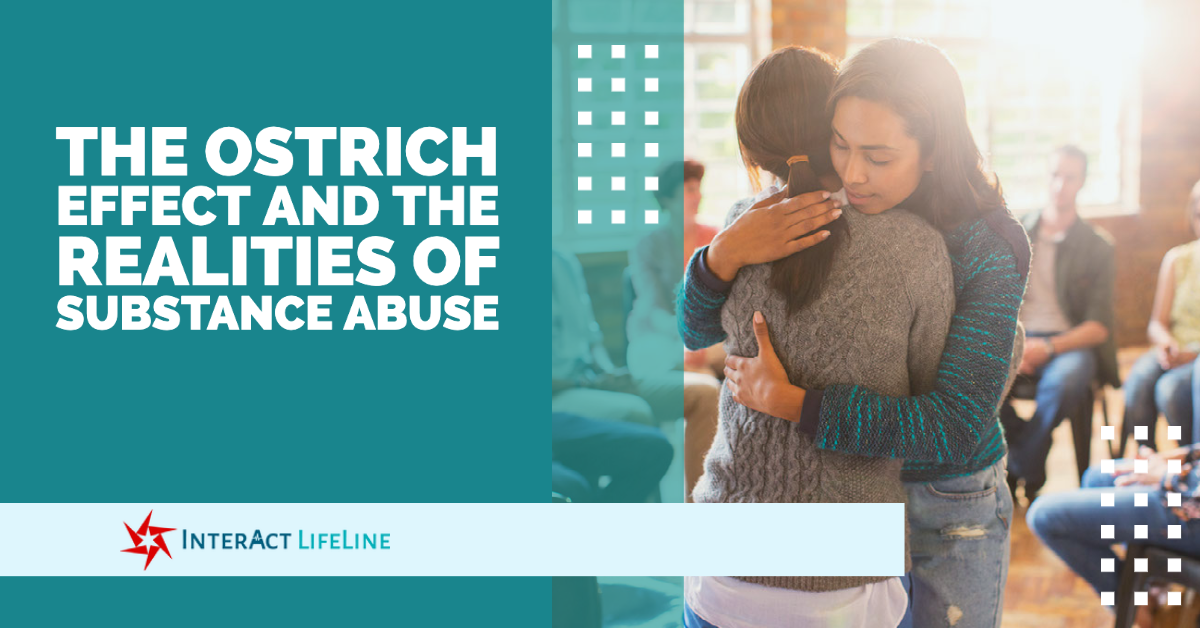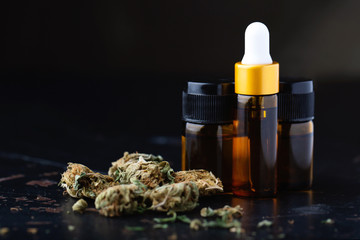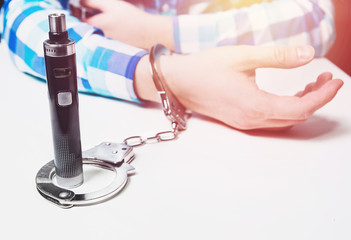Article
The Ostrich Effect
Article by Carolyn Bradfield for InterAct LifeLine
The "Ostrich Effect" in Substance Abuse
There is a term that psychologists often refer to as the "Ostrich Effect". Simply put, this is an attempt to avoid any information, news or conversation that you might consider uncomfortable or unpleasant.
All of us have been guilty of hiding our heads in the sand if we don't want to hear bad news about our health, finances, meeting our goals or even our weight if we're worried we just haven't lost enough from our latest diet.
The Ostrich Effect is an attempt to protect ourselves from the emotional impact of hearing bad news; however, when it comes to facing the realities of the substance misuse landscape, the potential to die from an overdose and the damage caused to your family, it's time to get our heads out of the sand and start to pay attention.
Here are some reasons that many of us become ostriches when it comes to the difficult realities of substance misuse, addiction and overdose.


This would never happen to me
I joined a Facebook group run by Compassionate Friends that is devoted to parents who have lost an adult child to overdose. Aside from heartbreaking stories of grief and loss, so many of the members of this group are stunned by their seemingly normal child who overdosed and died. Will this happen to someone in your family?
Well, the statistics are now working against us with over 107,000 dying from overdose each year, primarily from fentanyl that is now laced into pills bought off the street, pot, cocaine and many other substances that you would never expect. It can happen to you and now it's happening to families all around you.

But I have good kids
I had a "good kid" who played soccer, was a girl scout and a good student, but at age 14 she started smoking pot, then it went downhill from there. All "good kids" have brains that are not fully developed until about age 26, so exposure to substances or alcohol at young ages will rewire the brain of at least 1 in 10 adolescents turning them into full-blown addicts by the time they leave high school.
"Good kids" experiment, but that experimentation leads to a very big number of them developing the disease of addiction that has to be managed over a lifetime.

I would know if someone I love is using
I founded and ran a licensed treatment program for adolescents ages 13-17 (Phoenix Outdoor). One of the most common things parents would say to us is, "I had no idea." Your kids and family members are smarter than you think and when it comes to abusing substances and they are masters at hiding that fact from you, finding ways to fund their habit, and staying under the radar.
If you think you are smarter or more perceptive than your teenager, your coworker, your spouse or friend, think again. People misusing substances get really good at fooling those around them.

It's just pot - how bad could that be?
If you smoked pot years ago when you were in high school and college, be aware that the pot your kids are consuming is much more potent than what you might remember. People do and can become addicted to it with side effects that include mental health issues like depression, a drop in IQ, impacts on coordination, and overall demotivation.
Marijuana is not harmless. It can cause psychosis, other significant side effects, and addiction, but when mixed with an opioid such as fentanyl, there are even greater risks including death. Fentanyl is hard to detect so you may not even know it's there.

It couldn't be addiction. They can just stop whenever they want to.
And maybe that's true with some people, but for others who have developed the disease of addiction, it's way harder than you think. The brain has now been rewired and it overproduces dopamine in the presence of a substance which is a huge shot to your pleasure center. Addicts are often compelled to use vs. choosing to use.
You can put your head in the sand and think this issue will just magically disappear, but the reality is that it takes work to break the habit and treat the disease over the long haul.
I grew up in a small Georgia town that was so conservative, you couldn't even buy alcohol and certainly there were few or no drugs available when I was in school. But times today are quite different. People, particularly adolescents, now have so many other ways to find substances, experiment with them, and get addicted. So if you think it would never happen to you, that you have good kids or that you are smarter than the rest of us in being able to detect and solve the problem, think again.
You are an "ostrich" if you stick your head in the sand, fail to learn about the landscape we now find ourselves in, and raise your awareness about the impact of the opioid crisis that is right in your backyard, whether you know it or not. When your head comes out of the sand, you can learn how to prevent misuse and prevent the disaster that could happen to you.
Learn more about the warning signs of addiction and how to prevent substance abuse below.
Get Started with InterAct LifeLine
InterAct connects individuals to treatment, support
communities & families to improve recovery.
